Intercultural Crosstalk
A Conversation With Young People Connecting Japan to the World -About School and Further Education-
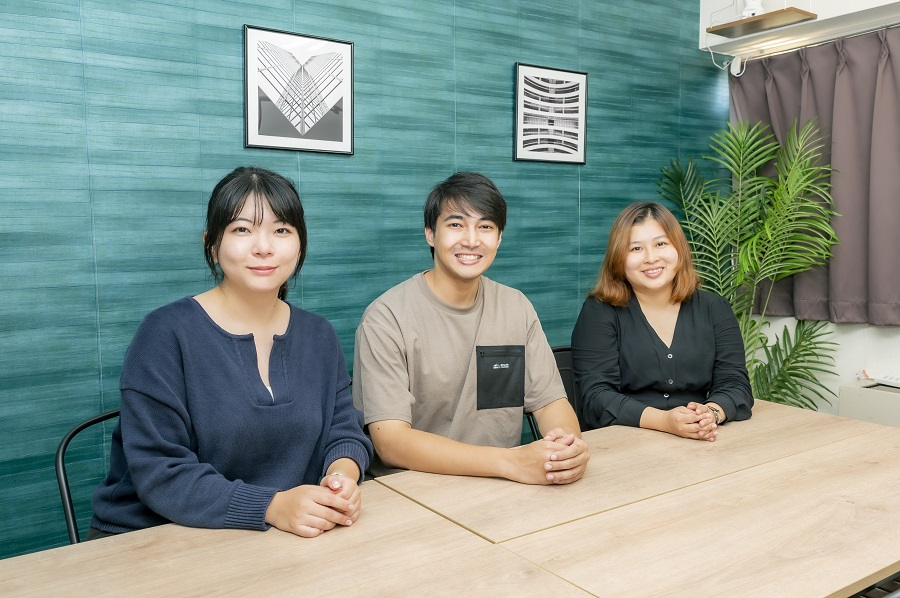
See their profiles here
Click for "1st Round" HereRound 2: About School and Further Education
In the second part of our conversation of young people connecting Japan to the world, we will introduce the topic of "School and Further Education". It seems that schools and regions in Japan differ considerably in their acceptance and support systems for children with foreign connections, such as Japanese language support and information on higher education. The participants talked about what they didn't know at the time and what they found troubling or perplexing in retrospect.
Was There Japanese Language Support at Your School?
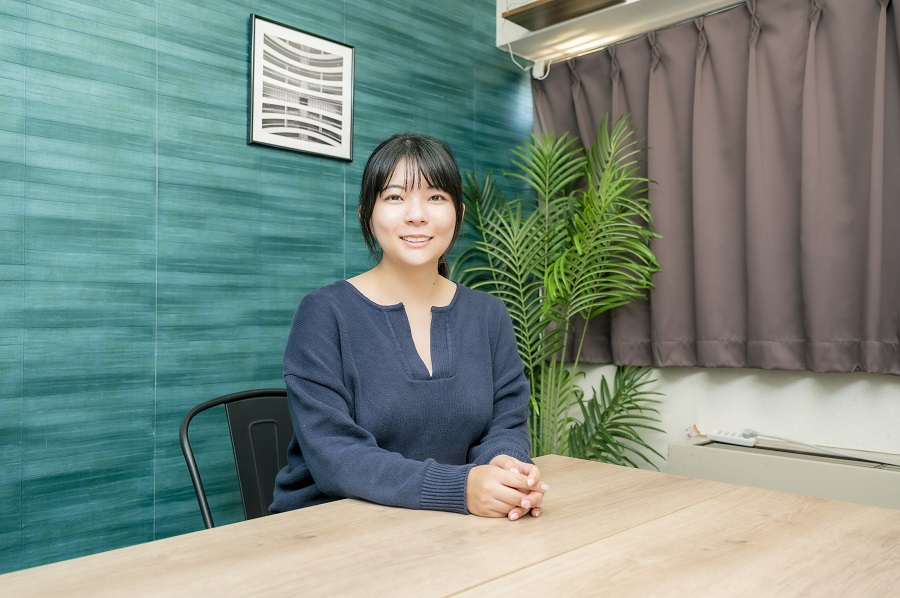
At the first elementary school I entered in Kanagawa Prefecture, there was no support, including Japanese language support. After moving to another elementary school with many foreign students, Japanese classes were offered. I did not attend those classes as my Japanese was somewhat good by then.
There was no Japanese language support at my elementary school, so I attended Japanese language classes at the ward office. The teachers were kind and always worried about me. They also made home visits and spoke with my parents frequently.
Your teacher was very dedicated!
The first elementary school I entered had a lot of bullying, and when I became the target of it, I developed selective mutism and could not speak in front of others. My mother, who was unaware of this, wanted me to study hard anyway, so she told my teacher at a parent-teacher conference that she wanted the teacher to be more strict with me.
The teacher told us that I should go to a school for children with disabilities because I had some kind of mental illness or other disability. At that time, I could not speak Japanese or get angry, but I could understand. It was hard for me because they thought I had a disability just because I couldn't speak Japanese. I think there are other children like me.
In the case of Japanese schools in Taiwan, a large percentage of the students are from families of international marriages. Since a certain number of children with Japanese language difficulties are expected at the stage of entering the school, Japanese language supplementary classes were offered for the lower grades. At the teacher's discretion, they would call on students to participate in the supplementary classes. I could not speak at all, but since I was not called upon by the teacher, I persevered and did my best in the classroom.
When you enter a school where there are no other people in the same situation as you, you feel uneasy. I think the teachers don't know what to do, and that anxiety is transmitted to the students. I also did not know what to say to the teachers, so I felt uncomfortable during my time at school.
I, too, wish I would have met someone with a similar background to mine. Not my classmates, but someone a little older. At first, I entered a Japanese school not being able to speak Japanese, so I could not learn in the National Language class or reading comprehension. At the time, I was not confident about my roots and identity, so I wanted to hear from someone who had overcome these obstacles.
Did You Have Any Trouble or Difficulties at School in Japan?
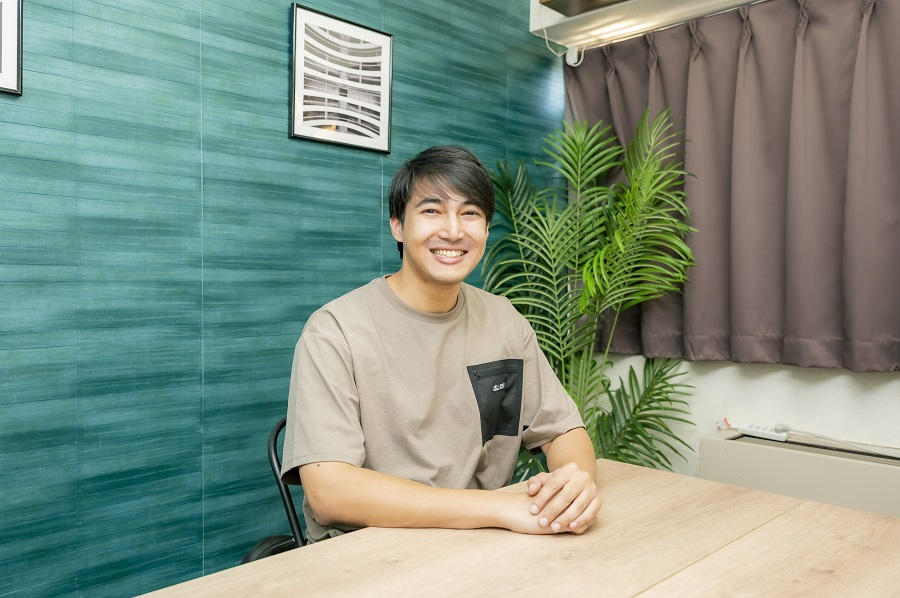
I remember thinking that Japanese schools and Nepalese schools are totally different. I think it has been improved now, but at that time, physical punishment was terrible in Nepal, and I hated school. I thought Japanese schools were good places because there was no physical punishment.
In South America, parents always go with their children to and from school. There were a lot of kidnappings, especially of children of Japanese descent or Nikkei, because of the perception that they had money. My mother always had that perception in Japan as well, so she would try to follow me to school groups, school trips, etc. in Japan. In Japan, children play outside alone, so that is totally different.
I also thought it was easier in Japan, since you can graduate from elementary and junior high school, even if you are not a good student. In Peru, there is a system of retention from elementary school onwards.
It is the same in Nepal. There was one kid in my grade who was older than us.
There are children who repeat the first grade in elementary school up to 3 times.
I also thought that the way teachers are or behave are different in Japan and Nepal.
That's for sure. I think Japanese teachers are very polite and have an appropriate distance from their students. When I entered a local school in Taiwan for high school, I communicated with the teachers via LINE, and they were very close to the students. The way the teachers behave is different and not like teachers.
It was a mystery to me that schools are places where students go to study, but in Japanese schools there are many events where everyone does something together, such as jumping rope, chorus contests, and so on. In South America, there were only soccer tournaments, but nothing else.
Japanese schools abroad are just like bringing the whole Japanese school system from Japan, so there is a lot of hands-on learning, such as technology and physical education. But in Taiwanese high schools, athletic meets were held for those who wanted to attend, so there was no such thing as a class doing something together as one. Because of this, the friendships among friends are different, so I don't hear of any high school reunions in Taiwan.
Was There Anything You Didn't Understand When You Decided to Go to High School or University?
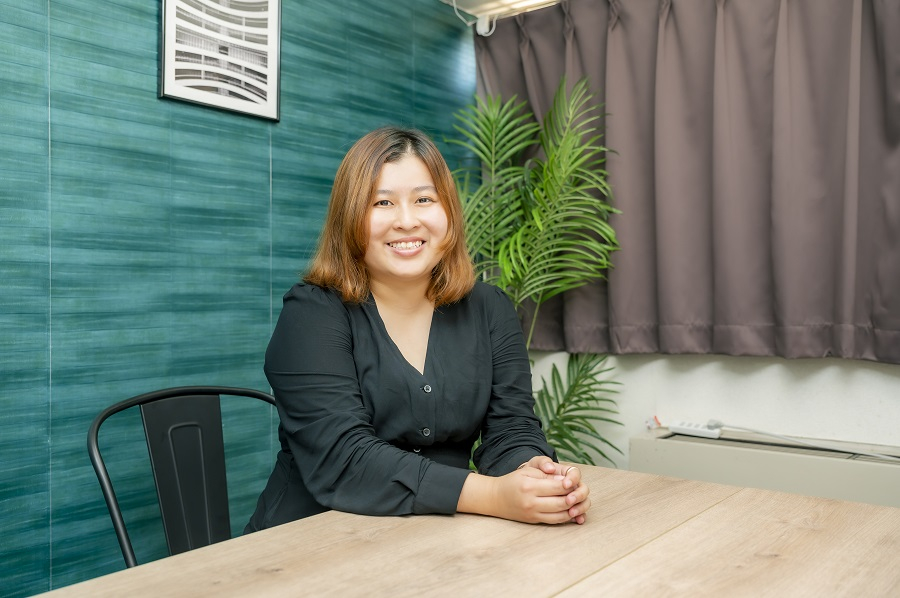
There were many things I did not know about going on to high school. I was planning to enter university in Japan, but my parents suggested that I come to Japan starting from high school, so I came with a casual attitude. I had to take the high school entrance exam and had forgotten a lot of my Japanese, so I consulted with the ward office and was introduced to the Multicultural Center Tokyo, where I studied from elementary school to the third grade of junior high school. Without that place, it would have been very difficult.
Did you take the high school entrance exam after studying for 1 year?
Yes, that's right. I was able to enter high school in 1 year because I still had some basic Japanese, but without it, it would have been difficult. When the Nepalese parents around me saw that I was able to enter high school in one year, they called the other children to come here. But I think it would be very difficult if they will come here not knowing any Japanese.
I did not know which high schools were good or other information that everyone else seemed to know as a given. I was honestly shocked when my teacher told me, "You cannot speak Japanese, so you should apply to the designated school". My Japanese had improved a lot, but I was still told I couldn't. I thought that even if I tried my best, it would be impossible for me, so I entered the designated school as I was told. It was a high school with a low deviation score even within the prefecture. I still think that I could have gone to a better high school.
I hope there will be more high schools offering options for children with our backgrounds. When taking entrance exams, most kids take the foreigner quota, but there are only a few schools that have that quota. And I wish I had known that different high schools have different deviation values and levels. In Nepal, they are all the same, so there is no difference in level.
There are schools that you can enter if you have been in Japan for less than 3 years, even if you do not speak Japanese, but I am not in that category. I also wish I had known that there was a difference in the level of high school. The high school I went to only offered job placement assistance, and only five of us went on to university. It would have been good to know that I should have chosen a different high school since I was planning to go to university.
If you want to go to a Taiwanese high school from a Japanese school, you will be placed in the foreigner quota. However, since I have both Taiwanese and Japanese citizenship, I could not use that quota and had to take the general entrance examination. In addition to what I had learned at the Japanese school, I had to cram the curriculum of the three years of junior high school at the local school, so I entered a lower level high school. While feeling various things in a class that was not focused on studying, my desire to go to Japan grew stronger, and I came to Japan to enter university. My father gave me advice on how to pursue higher education.
I never talked to my parents about high school or university. My mother told me to continue my education, and my father told me to work, and my parents were of the exact opposite opinion. The only reason I managed to go to university was because I met a very good teacher in my high school guidance office.
Did You Have Any Role Models Around You?
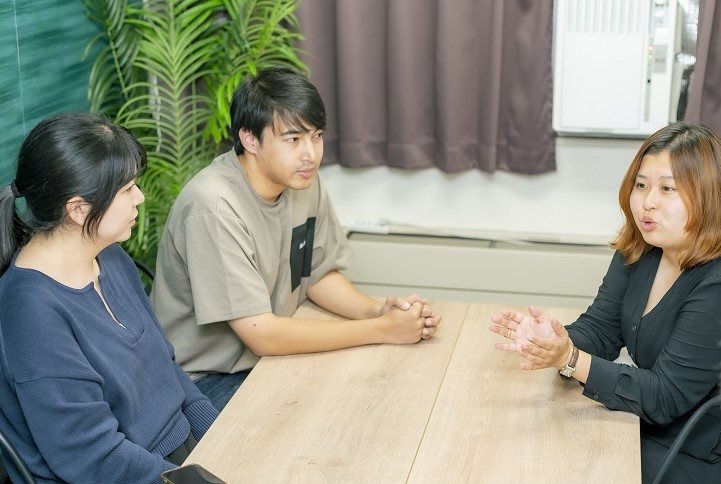
I didn't have anyone that could be a role model. If there were, I would have liked to hear their advice.
It would be nice if we can be the role models.
I have been involved with students at a part-time high school where many of the students are connected to foreign countries, hoping that I can be a role model for them. There are many problems that students face, such as visa status and money problems. However, as a Nikkei with permanent residency status, I have different conditions from the students without permanent residency status in that there are restrictions on part-time work hours and scholarships are not available, so I feel that I cannot be a role model.
Yes, I agree. It seems difficult to be a role model. Because each of us has different conditions.
That's true. I have Japanese citizenship and cannot speak on the same assumptions, so there was frustration and somewhat of a dilemma.
I understand. I strongly felt that simply because a child has a similar background does not mean that he/she can be a role model.
Yes, but we can still offer some advice.
Yes, we can create connections.
The people who supported me continue to support students like me today as they did back then. By joining them, I think I am gradually returning the kindness.
I assimilated and broke down the various conflicts, setbacks, and failures between the two countries, between the two languages, and between the two cultures, and made them the subject of my research. By highlighting not only the fact that I am from a foreign country or have connections to a foreign country, but also that I am connected to Japan in many ways, I want more people to know about this issue. I believe that this will help to relieve some people from the daily thoughts that I had in my childhood, such as the wish that I had to be able to speak with people with similar backgrounds to myself, or thinking that I am the only one going through this situation. I hope to indirectly learn to be persuasive in my own way and create the premise that Japan is a multicultural country.
What did you think of the second roundtable discussion?
Because their situation was different from that of their friends around them, at times they had to worry alone, and they had to work harder than others. The 3 of them are now working with junior high and high school students connected to foreign countries as one of their seniors so that they can be the role models they needed back then. The words of these young people who are connecting Japan to the world, who have experienced these various situations in their own lives, will bring us many lessons and discoveries.
On the next issue, we will talk "About Identity".
── Continued in the Following Issues
